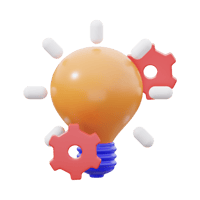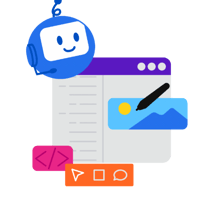Definition of AI Automation AI automation represents the use of artificial intelligence...
Easy ways to get started with AI Automation
Easy ways to get started with AI automation
Embarking on the journey of AI automation may seem daunting, but starting with a structured approach can ease the transition and lead to substantial benefits for your business. Initially, it is crucial to identify processes that are most suitable for AI automation—typically those that are repetitive and data-driven—making it easier to establish a clear starting point. Once identified, businesses should conduct a cost-benefit analysis to ensure that the resources invested in AI provide a substantial return on investment. Collaborating with experts or hiring consultants who specialize in AI can provide valuable insights and help customize solutions to fit organizational needs. Engaging in pilot projects allows companies to test AI deployments on a small scale, mitigating risks and refining strategies before full-scale implementation. To further facilitate integration, businesses should consider leveraging user-friendly AI tools and platforms that offer scalability, supported by comprehensive documentation and community forums. These resources can help staff members familiarize themselves with AI systems, fostering a culture of innovation and continuous learning as AI becomes an integral part of the operational framework.
First Step to Implement AI Automation in Your Business
To begin implementing AI automation in your business, it's essential to take a strategic and methodical approach. The first crucial step is to conduct a thorough assessment of your existing processes and identify areas where AI can deliver the most value. Typically, this involves pinpointing repetitive, data-intensive tasks that could benefit from automation. Once these tasks are identified, it's important to set clear, achievable goals and determine success metrics to measure progress. Developing a detailed roadmap for AI integration ensures that all stakeholders understand the scope and objectives of the project, facilitating smoother collaboration across different teams. Engaging with AI experts or consultants can provide additional insights, helping you tailor AI solutions that align with your business needs and objectives. These initial steps create a strong foundation for the seamless adoption of AI technologies, minimizing disruption while maximizing potential returns.
Tools and Resources for AI Automation
Embarking on AI automation requires access to the right tools and resources that can streamline the integration process and optimize results. There are a multitude of AI platforms and software solutions available today that cater to various business needs, from beginner-friendly AI tools with intuitive no-code interfaces to more advanced platforms designed for intricate automation tasks. Some of the well known options are:
Open-source libraries like TensorFlow and PyTorch are alsoinvaluable resources that offer flexibility and an active community support network, making it easier for businesses to develop and customize AI models while reducing costs. For those new to AI, cloud-based AI services such as Google Cloud AI and Amazon Web Services (AWS) offer scalable solutions with the benefit of comprehensive documentation and automated model-building functionalities. Additionally, investing in AI training and development tools, such as DataCamp or Coursera, can significantly enhance the skills of your team, empowering them to harness AI capabilities effectively. By leveraging these resources, companies can rapidly advance their AI automation efforts, facilitating seamless integration into existing systems and enhancing overall operational efficiency.
Benefits of Learning and Developing Skills in AI Automation
To remain competitive in an AI-driven world, developing skills in AI automation is becoming increasingly essential for professionals across sectors. As AI technologies continue to evolve, organizations are placing a high value on employees who are adept at leveraging these tools to drive business success. Learning opportunities abound, with online courses, workshops, and certification programs offered by platforms like Coursera, Udacity, and LinkedIn Learning that cater to diverse skill levels, from beginner to advanced. These educational resources not only teach the technical aspects of AI but also provide insights into practical applications and industry-specific implementations. Access to these learning platforms empowers individuals to build competencies in AI automation, enabling them to contribute to innovation and process improvements within their organizations. Moreover, as businesses embrace AI more extensively, having a workforce skilled in AI technologies ensures smoother integration and maximization of AI's potential benefits, aligning with strategic business goals. By investing time and effort in acquiring AI skills, professionals not only enhance their career prospects but also drive their organizations toward greater efficiency and competitiveness in an ever-changing market landscape.


